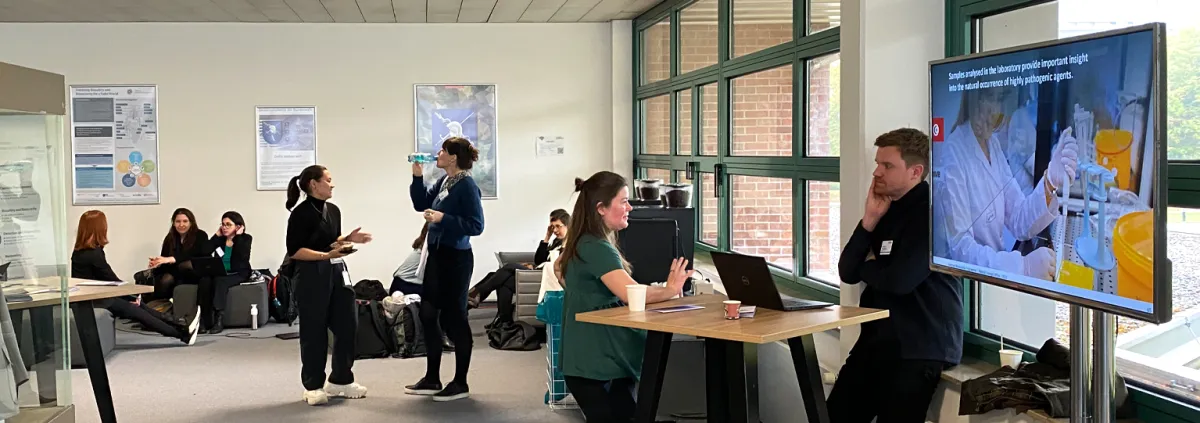From 23 to 25 October 2023, the world's largest specialist conference in the field of medical biodefence took place in Munich for the 18th time. The Medical Biodefense Conference (MBDC) brings together experts from science, politics and the security and health sector from all over the world and provides a platform to discuss strategies and research on measures against biological threats, which can be applied in natural disease outbreaks as well as in bioterrorist attacks.
This year, over 450 experts from 50 nations accepted the invitation from the Bundeswehr Institute of Microbiology (IMB). Despite the current international crises and armed conflicts, the organisers were able to put together a full and scientifically valuable programme with over 70 talks and more than 130 poster presentations.
Over two and a half days, participants presented and discussed a wide range of biosecurity-related topics: from the decontamination of ships, the application of innovative bioinformatics developments and new findings in biotoxin research to clinical cases and the potential use of bacteriophages in diagnostics and therapy. This year, the format of a round-table discussion was added to the programme. As head of the German Biosecurity Programme, Silke Bellmann discussed the risks and effects of disinformation in the field of biosecurity with international experts from the fields of risk communication, peace research and defence analysis.
The German Biosecurity Programme was represented at the MBDC in various formats. The German and international partners of the programme had the opportunity to present their work to an international audience of experts in a dedicated session. Silke Bellmann introduced the session with a presentation of Germany's commitment in the G7 Global Partnership (Biological Security Deliverables Against the Spread of Weapons and Materials of Mass Destruction) and coordinated the session with her co-chair from the IMB. Partners from Tunisia (Joint Efforts of both the Mobile Laboratory and Task Force and Decontamination Unit are essential for an effective Defence), Kosovo (Preparedness, Surveillance, and Response to Crimean-Congo Hemorrhagic Fever Virus), Ukraine (Diagnostics and Surveillance of Class 3 and 4 Risk Viruses) and the European counterpart to the German Biosecurity Programme – The EU CBRN Centres of Excellence-Initative with a presentation by the Regional Secretariat for Central Asia (Mitigation of Risks of Zoonotic Diseases that may arise as a Result of Climate Changes in Central Asia) – presented the project activities.
Between sessions, conference participants were able to network, work or simply take a deep breath and have a coffee in the Biosecurity Lounge. The Coordination Office of the Biosecurity Programme organised a cosy space to retreat from the hustle and bustle of the conference and enjoy delicious coffee varieties.
Once again, the two and a half conference days flew by; two and a half days full of exciting presentations, lively debate and intensive networking. For this reason, we can once again say with hope and confidence: See you again at the Medical Biodefence Conference 2025.
*Gordon Wilke

Please log in or sign up to comment.